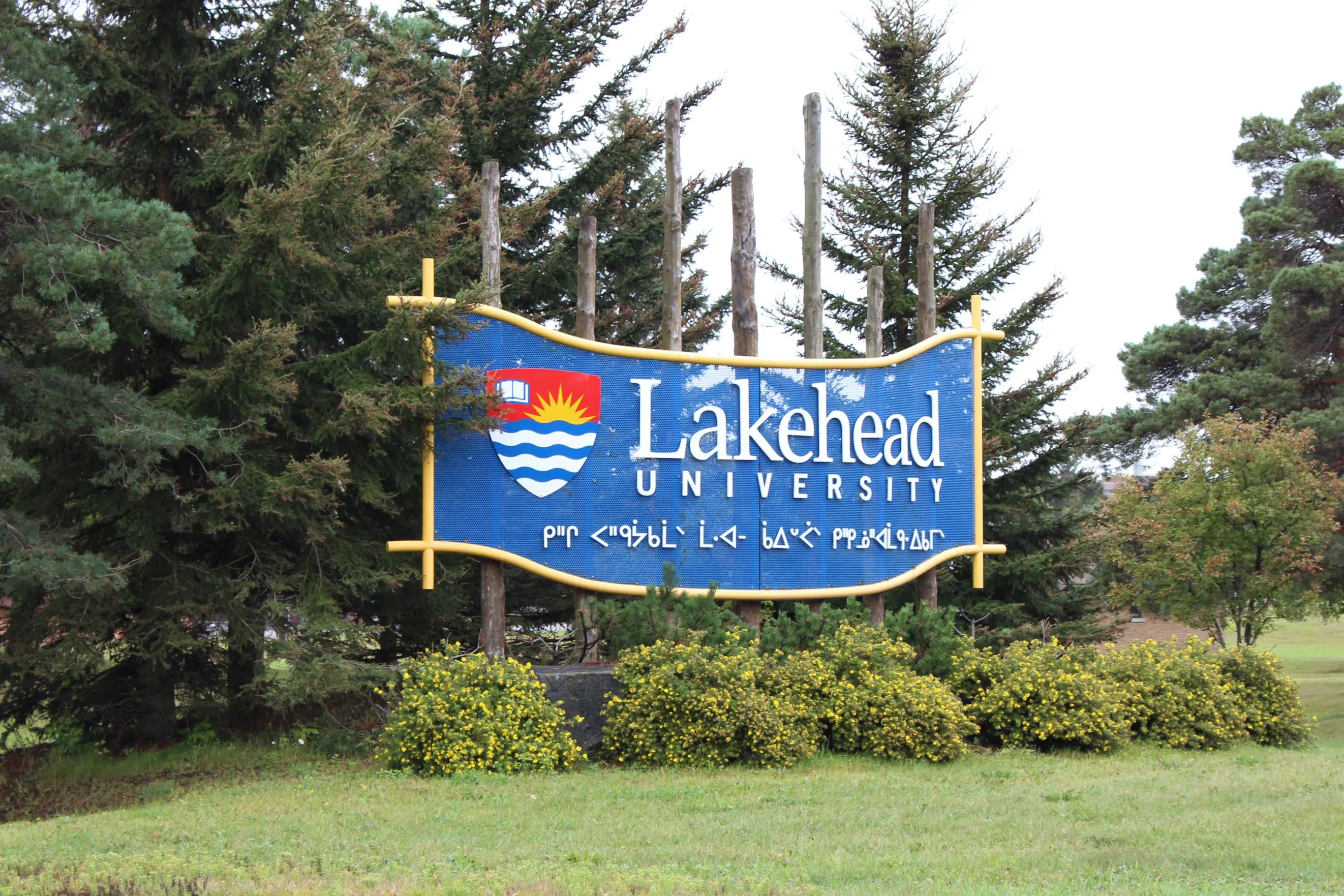
Lakehead University's Thunder Bay Campus (File Photo/Acadia Broadcasting)
Lakehead University has received funding to help address the underrepresentation of Indigenous perspectives and knowledge in the engineering industry in Canada.
The Natural Sciences and Engineering Research Council of Canada (NSERC) PromoScience program is giving the university $540,000 to lead a project called Sustainable Engineering for Indigenous Communities.
The project aims to develop outreach programming for primary and secondary school students in northwestern Ontario, Manitoba, and Saskatchewan, with an emphasis on engaging Indigenous youth and their communities to promote sustainable engineering.
“Our shared intention with our partners is to provide Indigenous youth with more opportunities and more pathways to become engineers, enabling them to apply their talent and perspectives to help address challenges facing communities across Canada, including sustainable land development, ecosystem restoration, and access to clean water, energy, and housing,” said Faculty of Engineering Dean Dr. Janusz Kozinski.
Dr. Kozinski adds that less than one per cent of undergraduate students enrolled in accredited engineering programs in Canada identify as Indigenous. “We want to send a strong, compelling message to students throughout their educational journey that engineering is for everyone and there is a pathway for every student to become an engineer.”
Saskatoon-based PSI Analytics, a pavement, materials, and mining engineering firm as well as Civiconnect in Ontario which develops work-integrated learning experiences for young people, are partners in the project.
The program aims to engage 2,000 Indigenous youth each year, and an additional 5,000 through digital resources and platforms.
“Going straight to the communities with something that we call tinker trucks,” said Dr Kozinski. “Inside, they will look like our laboratories, where young people will be able to learn by touching things and doing things in 3D printing, rapid prototyping, manufacturing drones, etc, but it’s very important the other element which is producing videos and other digital content for social media that explains and promotes the positive impact of indigenous engineers in Canada and in general, the engineering profession as a whole.”
Educators, including Elders, Knowledge Keepers, and cultural advisors, will support the development and delivery of these initiatives.
“What we want to do is to focus on the principles of partnership,” said Dr. Kozinski. “So it’s all about creating partnerships and we want to develop programs that will be co-designed, co-developed and co-delivered with our partners, including Indigenous partners in elementary schools, high schools communities.”
Outside of online resources and travelling to communities, the program hopes to welcome students to the facilities at Lakehead as well.
“But also we want them to come and work with our faculty members, with professors on specific projects related to housing, energy, clean water, land development and so on, so they will be able to have first-hand, hands-on experience, so they will come, let’s say, to our campus during the summer for a week,” explained Dr Kozinski. “And then they will be able to take that experience back to their communities, share with their parents, with their friends, with their schoolmates.”
“So that way we hope that the message that we are creating is going to propagate, and we anticipate that we’re going to reach a significant proportion of students over those three years.”
Fort William First Nation, the Ontario Society of Professional Engineers, Gambler First Nation in Manitoba, and Lakehead’s Office of Indigenous Initiatives strongly supported the proposal for the program, according to Lakehead.
The project is already underway, but the hope is to start launching the program in full around mid-June.
The program is scheduled to take place for three years, but a high level of success could lead to a project extension.
Partners at Lakehead University are also supplying funding towards the project.
NSERC’s PromoScience program offers financial support for organizations working with young Canadians to promote an understanding of science and engineering (including mathematics and technology).
